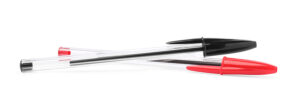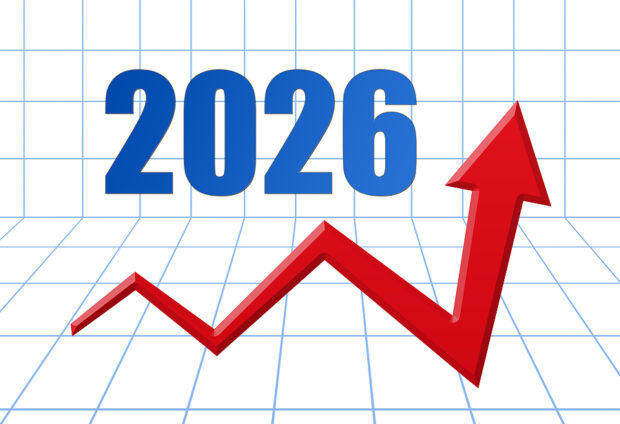While Lemonade is still burning cash and reported a net loss on the bottom line of its third-quarter income statement, the InsurTech expects both situations to reverse by year-end 2026.
The cash situation, in fact, will turn around by year-end 2025, Daniel Schreiber, co-CEO of Lemonade, reported on an earnings conference call, echoing statements made by other executives and included in the shareholder letter accompanying third-quarter financial results. “We expect to become cashflow positive by end of year 2025 and to reach that point with hundreds of millions of unencumbered dollars in the bank.”
“We expect to become adjusted EBITDA positive by year-end 2026,” he added.
In Lemonade’s financial reports, “adjusted EBITDA losses” are net earnings (or losses) before interest, taxes, depreciation and amortization adjusted for a few other items—the most significant of which is stock-based compensation expense. In third-quarter 2023, the “adjusted EBITDA loss” figure was $40.2 million. The unadjusted bottom-line net loss figure (after taxes) was $61.5 million in the quarter.
Both figures were improved from third-quarter 2022 (33 percent lower net loss and 39 percent lower adjusted EBITDA loss), as the gross loss ratio improved 11 points to 83, operating expenses shrank 11 percent, and gross earned premiums jumped 27 percent to $173.2 million.
 Through nine months, adjusted EBITDA was $143.7 million in the red, and the net loss figure was $194.5 million. For the full year, Lemonade is guiding toward an adjusted EBITDA loss figure in the $186-$188 million loss range.
Through nine months, adjusted EBITDA was $143.7 million in the red, and the net loss figure was $194.5 million. For the full year, Lemonade is guiding toward an adjusted EBITDA loss figure in the $186-$188 million loss range.
While Schreiber started the call by saying that Lemonade is generally “very pleased” with results—”top line, bottom line and intervening lines”—an analyst asked the management team for more detail on what exactly changed to give them confidence that the company will be cash flow and EBITDA positive sooner than previously expected.
In short, there is just more clarity around rate approvals and loss ratio trends, said Tim Bixby, Lemonade’s chief financial officer.
“Enough time has passed and enough rate has earned in—and enough rates have been approved where we just have much more clarity on how that loss ratio is likely to play out,” he said, referring to the time elapsed since Lemonade last provided projections from its models. “There are certain aspects of loss ratio that you can’t know,” the CFO said, referring to weather. “But [on] the pieces that we can know—the dollars earned in and the dollars expected to earn in and the rate approvals—we just have four, almost five more quarters of data,” he said, referring to the rate piece as “a key driver” of the profit projections.
Notably, Co-CEO Shai Wininger also shared breaking news on a rate approval in California, reporting that the state approved a 51 percent rate increase for Lemonade’s auto insurance yesterday. Wininger announced the approval as he responded to investor concerns about the performance of Lemonade car. The rate hike “is especially significant as approximately 50 percent of our car premium comes from California,” he said. “As these new rates earn in, we expect to become rate adequate. We believe that this can yield a healthy loss ratio, allowing us to grow car faster in the coming years.”
The Lemonade letter of shareholders released on Thursday does not reveal line-by-line detail on loss ratios, stating only that improvements in the auto loss ratio lag behind other products.
AI’s Starring Role
Bixby said a second set of trend lines bringing clarity to Lemonade leaders in making projections of future profit relates to premiums and expenses moving up at different speeds. “If you look at both our cost lines and our headcount reporting that we do quarter to quarter, you can see the real impact of automation and leverage and scale in the model…This is something we’ve known and planned for many years but has not been really evident externally until the last three or four quarters, where you can really see it in those [underwriting] ratios,” he said.
“Premium [is] growing at a very healthy clip, [while] operating expenses [are] growing at a much slower pace—and in some cases, some operating expense lines [are] flat or even down,” he said.
Wininger called out a specific statistic from the shareholder letter conveying similar information: Over the last two years, Lemonade’s gross earned premium has doubled while operating expenses rose by just 19 percent.
“This speaks volumes about our growing efficiency, and bodes well for the coming years,” he said. “As we expand the scope and depth of our automation efforts, we expect to accelerate our top-line growth while improving our bottom line. AI and automation plays a starring role in enabling this dynamic and hence in charting our path to profitability and beyond,” he said.
Providing an update on some of Lemonade’s recent AI advances, Wininger described efforts to “substitute human involvement in many underwriting processes with systems powered by generative AI.” He gave the example of property inspections. A recently introduced self-inspection feature guides customers through a house tour. Captured images are automatically analyzed “to reduce both risk and cost. Using the new generative AI vision capabilities, we’re able to determine construction quality materials, finishes and levels of disrepair.”
“We can even read labels on water heaters and other equipment to determine their age and level of risk,” he said.
Wininger said Lemonade also recently introduced large language models into its customer support process. “Our generative AI-powered automation handles customer emails from start to finish,” he said, noting that the capability is just ramping up. Launched just a few weeks ago, AI is handling roughly 7 percent of our incoming customer service emails today, he said.
He noted that Lemonade is working on “dozens more” AI initiatives, “with new capabilities going live every few days.”
“What allows us to move so fast in incorporating these new technologies is the fact that our system was built from start to finish by Lemonade. We have zero reliance on third-party providers and in the last few years have built a modular and expensive platform that can seamlessly and easily integrate with new technologies like generative AI,” he said.
Early in the call, Schreiber noted that “continuous and strong growth are key to fully harnessing the benefits of automation,” reporting that the InsurTech expects to step on the accelerator to amp up the pace of growth considerably in 2024. Referring to some previously communicated reasons for a slowdown in 2023, Schreiber said that “as inflation subsides and rates come online, we can see our path clear to re-engaging our clusters in 2024.”
More simply, he said Lemonade anticipates next year’s growth to be at or around a 25 percent compounded annual rate that the company has previously communicated as a target.
Illustrating the growth engine over the years, Schreiber noted that Lemonade is set to reach a milestone of 2 million customers later this month. The company took 4.25 years to reach the 1 million mark, and only 2.75 years to add the next million, the shareholder letter said.
Before discussing Lemonade’s AI advances, Wininger took some time to acknowledge the resilience of Lemonade’s team members in Israel and to assure investors that Lemonade continues to operate without interruption. He noted that the overwhelming majority of Lemonade makers are based outside of Israel in the U.S. and Europe. “Thanks to the resilience of our distributed team and the level of automation we already have in our operations, our productivity remained high and our business continued to operate,” he reported. (Related sidebar, “An InsurTech in Israel” accompanies this article)





















 The Future of HR Is AI
The Future of HR Is AI  New Texas Law Requires Insurers Provide Reason for Declining or Canceling Policies
New Texas Law Requires Insurers Provide Reason for Declining or Canceling Policies  Premium Slowdown, Inflation Factors to Lead to Higher P/C Combined Ratio: AM Best
Premium Slowdown, Inflation Factors to Lead to Higher P/C Combined Ratio: AM Best  Modern Underwriting Technology: Decisive Steps to Successful Implementation
Modern Underwriting Technology: Decisive Steps to Successful Implementation 




